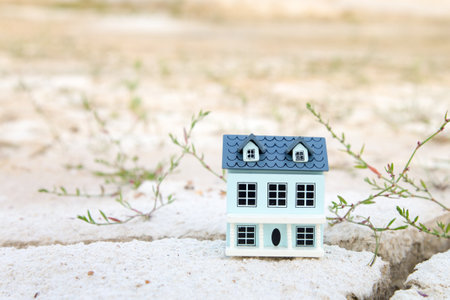1. Understanding Non-Primary Residences
In the UK, it’s important to distinguish between your primary home, a holiday home, and a second property—especially when it comes to insurance matters. Your primary home is the main place where you live most of the year; for example, your family house in Manchester or a flat in London where you spend the majority of your time. A holiday home, on the other hand, typically refers to a property you use occasionally for leisure or getaways—think of a cottage in Cornwall or a seaside apartment in Brighton that’s only visited during school holidays or weekends. A second property generally means any additional residence you own that isn’t your main living space, which could be an investment flat in Birmingham rented out part-time, or a city centre apartment kept for work trips. In short, non-primary residences are properties you don’t live in full-time. These distinctions matter because insurers view each type differently and set policies and premiums based on how often the property is occupied and what it’s used for.
2. Why Special Insurance is Needed
When it comes to insuring holiday homes and second properties in the UK, standard home insurance policies simply arent enough. Insurers treat these properties differently for several important reasons. The main issues revolve around increased risks, certain restrictions, and specific legal requirements that apply to non-primary residences.
Increased Risks
Holiday homes and second properties are often left unoccupied for long periods. This makes them more susceptible to:
- Theft or Vandalism: Empty properties are easy targets for burglars and vandals.
- Water Damage: Problems like burst pipes can go unnoticed and cause significant damage before being discovered.
- General Deterioration: Lack of regular maintenance can lead to bigger repair bills down the line.
Typical Restrictions Imposed by Insurers
Because of these increased risks, insurers will usually place extra conditions on your policy for holiday homes or second properties. Heres a quick comparison:
| Main Residence | Holiday Home/Second Property | |
|---|---|---|
| Unoccupancy Clause | Usually up to 30 days allowed empty | Might restrict cover after 30 days unoccupied; extra precautions needed |
| Security Requirements | Standard locks may suffice | Might require alarms, upgraded locks, regular inspections |
| Letting to Others | Usually not covered unless disclosed as buy-to-let property | Special terms if you rent out or let friends/family stay |
| Accidental Damage Cover | Often included or easily added | Might be excluded or limited due to occupancy risk |
Legal Requirements in the UK
If you let out your holiday home, you must comply with UK legal standards for landlords, such as gas safety checks and smoke alarms. Failing to meet these requirements could invalidate your insurance policy.
Summary Table: Why Holiday Homes Need Different Insurance
| Reason | Description (Plain English) |
|---|---|
| Empty More Often | No one at home means problems can get worse before theyre spotted. |
| Tougher Security Needed | You might need better locks and alarms because no ones watching the house daily. |
| If You Rent It Out | You have extra rules to follow as a landlord—like safety checks—which affect your cover. |
| Certain Damages Not Covered | Your insurer might say no to some claims if the house was empty too long or not looked after properly. |
In short, owning a holiday home or second property brings unique challenges. That’s why special insurance is not just a good idea—it’s essential for protecting your investment and staying within the law in the UK.

3. Types of Cover Available
When it comes to insuring holiday homes and second properties in the UK, it’s important to understand the different types of insurance cover on offer. Unlike your main residence, these properties may be at higher risk due to periods of unoccupancy or differing usage, so standard home insurance policies might not be sufficient. Below is an overview of the key insurance products tailored for non-primary residences:
Buildings Insurance
This type of policy covers the physical structure of your property – think walls, roof, windows, and any permanent fixtures like kitchens or bathrooms. For holiday homes or second properties, buildings insurance is particularly vital as damage caused by storms, floods, fire, or vandalism could go unnoticed for some time if you’re not regularly visiting. Policies are often tailored specifically for homes that aren’t lived in full-time.
Contents Insurance
If you leave furniture, electronics, or other valuables in your holiday home, contents insurance will protect you against theft, fire, or accidental damage. Because these properties can be empty for longer stretches, insurers may have different requirements or exclusions compared to a main home policy. Some might insist on specific security measures like approved locks or alarm systems.
Unoccupied Property Insurance
Standard home insurance typically becomes invalid if a property is left empty for more than 30–60 days at a time. Unoccupied property insurance fills this gap, providing cover when your second home or holiday let is vacant. It usually protects against major risks such as fire, flooding, storm damage, and theft but may have stricter terms and higher premiums due to increased risk.
Specialist Policies
Some providers offer specialist holiday home insurance packages that combine buildings and contents cover with extra features like public liability (important if you let out your property), accidental damage by guests, and loss of rental income following an insured event. These policies are designed with the unique needs of UK holiday homeowners in mind and help ensure you’re not caught out by unexpected gaps in protection.
Summary
In short, insuring a holiday home or second property in the UK involves more than just replicating your main home’s policy. By understanding the different types of cover available—buildings, contents, unoccupied property policies, and specialist packages—you can choose the right protection for your circumstances and enjoy peace of mind whether you’re staying there or not.
4. Key Features to Look For
When insuring your holiday home or second property in the UK, it’s vital to check that your policy includes certain key features. These not only provide peace of mind but also ensure you’re properly protected against the most common risks associated with non-primary residences. Here’s what every UK property owner should pay attention to:
Accidental Damage Cover
This feature covers unexpected mishaps like broken windows, damaged furniture, or accidental spills on carpets. Since holiday homes are often unoccupied or let out to guests, accidental damage is more likely. Always confirm whether this is included as standard or if it needs to be added as an extra.
Theft Protection
Non-primary residences can be more vulnerable to theft, especially when left empty for extended periods. Look for policies that cover theft without requiring signs of forced entry—some insurers may exclude claims if there’s no visible break-in evidence.
Liability Cover
This protects you if someone is injured on your property or if you accidentally cause damage to a neighbour’s home. Liability cover is particularly important if you rent out your property, as guests’ safety becomes your responsibility.
Alternative Accommodation
If your holiday home becomes uninhabitable due to an insured event (like fire or flood), this feature ensures your guests—or yourself—have somewhere else to stay while repairs are underway.
Comparison Table: Key Policy Features
| Feature | Why It Matters | Typical UK Insurer Approach |
|---|---|---|
| Accidental Damage | Covers common mishaps and guest accidents | Often optional extra |
| Theft Protection | Covers burglary, even during long vacancies | May require proof of forced entry |
| Liability Cover | Covers injury/accident claims by visitors or neighbours | Included, but check limits (£1m+ recommended) |
| Alternative Accommodation | Pays for a temporary place to stay after major damage | Usually included, limits vary (£10k-£50k typical) |
Plain English Tip:
If you’re unsure about any feature in your policy documents, ask your insurer for clarification in writing. Don’t assume all holiday home insurance policies are the same—terms can differ greatly between providers across the UK.
5. How UK Location Affects Your Insurance
When insuring a holiday home or second property in the UK, your propertys location is one of the biggest factors influencing both the cost and the terms of your insurance policy. Insurance providers will assess several regional risks before offering you a quote, and understanding these can help you anticipate any special requirements or higher premiums.
Coastal Properties: Wind, Water, and Weather
If your non-primary residence is located on or near the coast—think Cornwall, Norfolk, or even Brighton—insurers will take into account the higher risk of storm damage, coastal erosion, and saltwater corrosion. These properties are also more likely to be vacant during off-peak seasons, which increases the risk of unnoticed damage. As a result, insurers often charge higher premiums for coastal holiday homes and may impose stricter conditions regarding maintenance and security.
Flood Zones: Understanding Flood Risk
Properties situated in flood-prone areas—such as parts of Yorkshire, Somerset, or along the Thames—face unique challenges. Insurers in the UK use detailed flood maps to determine the level of risk for each postcode. If your second home falls within a known flood zone, you may find that insurance costs significantly more or comes with higher excess fees (the amount you pay towards a claim). Some policies might exclude flood cover altogether unless you purchase an additional add-on or meet specific conditions like installing flood defences.
Rural Retreats: Risks in Remote Areas
Country cottages and rural properties—whether in the Lake District, Scottish Highlands, or Welsh valleys—come with their own set of risks. These can include limited emergency services nearby, increased response times for fire or burglary incidents, and potential issues like oil tank theft or damage from fallen trees. Insurers may request evidence of enhanced security measures (such as alarms or locks) and regular checks on unoccupied properties to mitigate these risks. In exchange for lower risk factors (like being part of a local neighbourhood watch), some insurers may offer discounts on premiums.
Urban Second Homes: Less Isolation but Other Risks
If your second property is in a city—perhaps a pied-à-terre in London or Manchester—it may benefit from quicker emergency response times but could face other issues such as higher rates of burglary or vandalism if left empty. Urban policies tend to focus on security systems and may require evidence that someone checks on the property regularly if it’s not occupied full-time.
Summary: Location is Key
The bottom line is that location matters enormously when insuring a UK holiday home or second property. Coastal storms, floods, rural isolation, and urban crime rates all play into how much youll pay and what steps youll need to take to stay covered. It’s vital to be upfront about your property’s location when arranging insurance—and always check if there are any specific requirements based on its region before you commit to a policy.
6. Best Practices for Managing Non-Primary Residences
Owning a holiday home or second property in the UK comes with its own set of challenges, especially when it comes to security and maintenance. To safeguard your investment and keep your insurance valid, its crucial to adopt some best practices suited to the British environment.
Regular Inspections: Stay Proactive
Insurers often require that non-primary residences are checked regularly—sometimes every 7 or 14 days. Arrange for either yourself, a trusted friend, or a professional service to inspect the property frequently. These visits help spot issues like leaks, damp, or break-ins early on. Remember, if your insurer specifies a frequency in their policy, make sure to keep a log as proof of compliance.
Appointing Local Keyholders
Having a reliable local keyholder is invaluable. This could be a neighbour you trust, a letting agent, or a dedicated property management company. Not only can they respond quickly in emergencies, but many insurers look favourably on properties with a local contact who can access the home if needed. Just ensure your keyholder knows their responsibilities and how to reach you in case something goes wrong.
Security Systems: Modern Solutions for Peace of Mind
Investing in robust security measures is essential for UK holiday homes and second properties. Consider fitting British Standard locks, burglar alarms (preferably monitored), and motion-sensitive outdoor lighting. CCTV cameras are also popular and deter opportunistic thieves—just check you comply with privacy laws if cameras face public areas. Some insurers offer discounts for approved security systems, so always inform them about upgrades.
Additional Tips for Reducing Risk
- Water Damage Prevention: In colder months, lag pipes and set heating to low to prevent freezing. Turn off water mains during extended absences.
- Neighbourly Watch: Join or start a Neighbourhood Watch scheme; communities working together are less likely to experience crime.
- Garden Maintenance: Keep gardens tidy—overgrown lawns and hedges signal an empty house to potential intruders.
Summary
A combination of regular checks, trusted local contacts, and effective security will not only reduce risks but may also keep your insurance costs manageable. By being vigilant and proactive, you’ll enjoy peace of mind knowing your UK holiday home or second property is well looked after—even when you’re miles away.
7. Making a Claim: What to Expect
If you ever need to make a claim on your holiday home or second property insurance in the UK, knowing the process can help things go much smoother. Here’s a step-by-step overview tailored to British practices and expectations:
Step 1: Assess the Situation and Ensure Safety
First and foremost, make sure everyone is safe. If there’s been a break-in or serious damage like fire or flooding, contact the emergency services straight away. Once it’s safe, try not to move or repair anything unless absolutely necessary for safety – insurers will want evidence of the original state.
Step 2: Gather Documentation
You’ll need to collect as much information as possible. This typically includes:
- Photos or videos of the damage or loss
- Receipts, invoices, or proof of ownership for damaged or stolen items
- Police crime reference number if it’s a theft or vandalism
- Your policy documents and schedule
Step 3: Notify Your Insurer Promptly
Contact your insurance provider as soon as possible – most UK insurers expect notification within 24-48 hours of discovering the issue. You can usually do this by phone, through an online portal, or via email. Have your policy number handy for quicker service.
Step 4: Provide Full Details
When you speak to your insurer, be ready to explain exactly what happened and when. Provide all the documentation you’ve gathered. If requested, complete any claim forms they send over. Honesty and clarity are key; any discrepancies could delay your claim.
Step 5: Assessment by Loss Adjuster (If Required)
For more significant claims, your insurer may send out a loss adjuster – an independent expert who assesses the extent of damage or loss. They’ll visit your property (with prior arrangement) to inspect everything and may ask further questions about how the incident occurred.
Step 6: Communication and Updates
The insurer will keep you updated throughout the process – either by post, phone call, or email, depending on your preference. In the UK, insurers are generally expected to handle claims efficiently and keep customers informed at each stage.
Step 7: Settlement and Repairs
If your claim is approved, the insurer will outline their settlement offer. This could be a cash payment, direct repairs via their approved contractors, or replacement items. Check if there’s an excess (the amount you pay towards a claim), and clarify any queries before accepting.
Tips for a Smooth Claims Process:
- Keep calm and organised – maintain all records of communication with your insurer.
- If in doubt about anything during the process, don’t hesitate to ask your insurer for clarification.
- If you’re unhappy with how your claim is handled, you have the right to complain via your insurer’s complaints process or escalate to the Financial Ombudsman Service.
Navigating an insurance claim on a non-primary residence in the UK doesn’t have to be daunting. With good preparation and clear communication, you can ensure your holiday home or second property is protected when you need it most.


